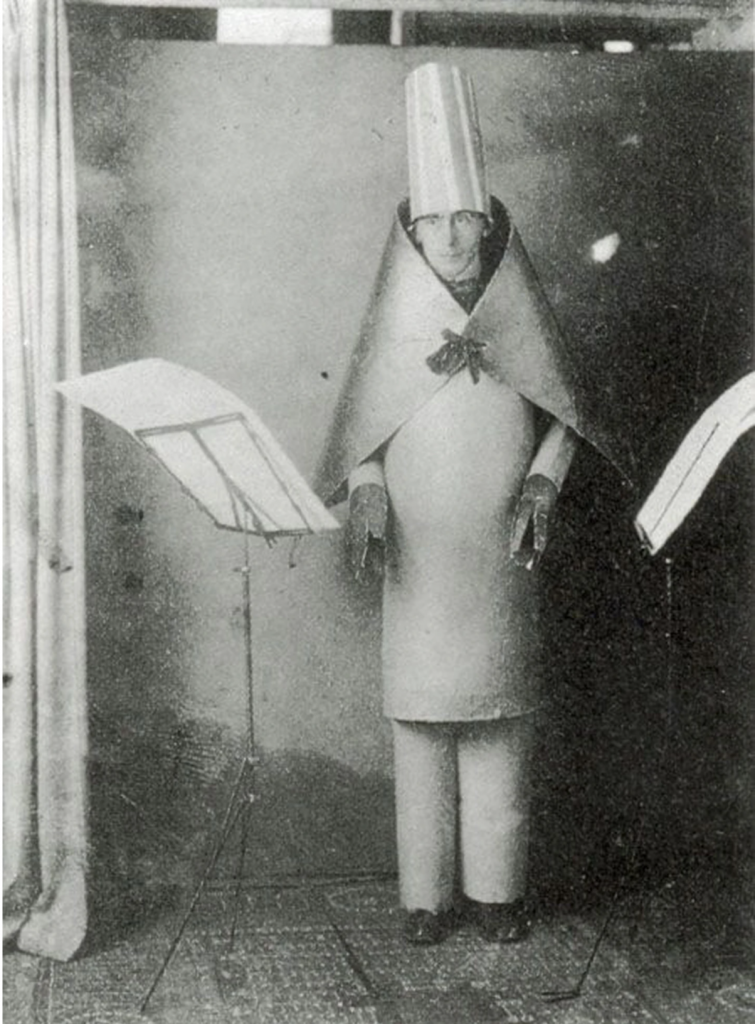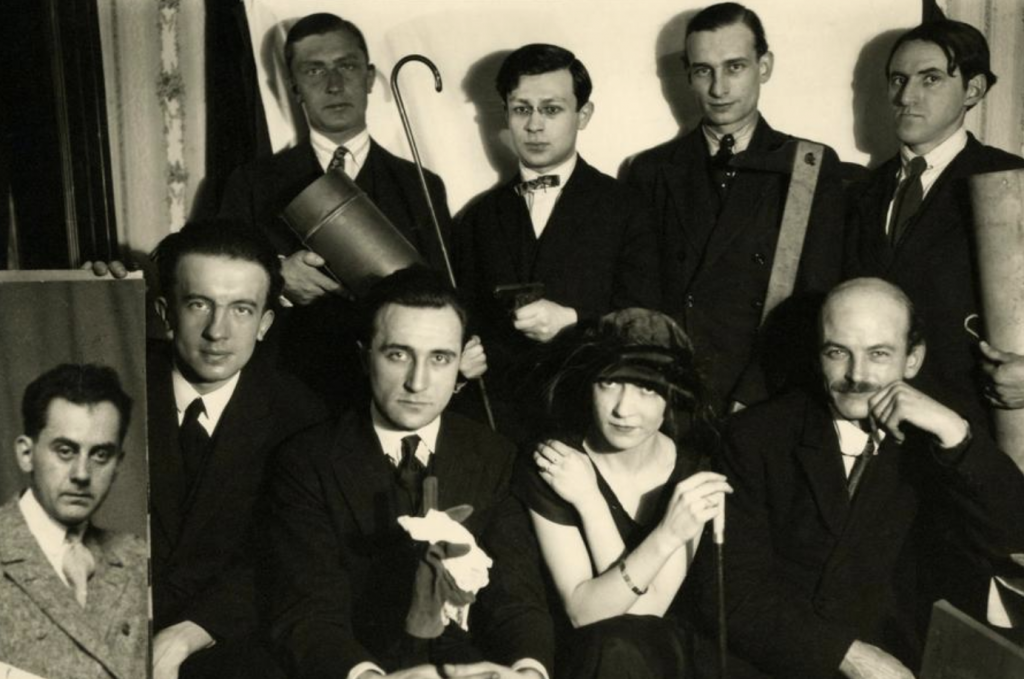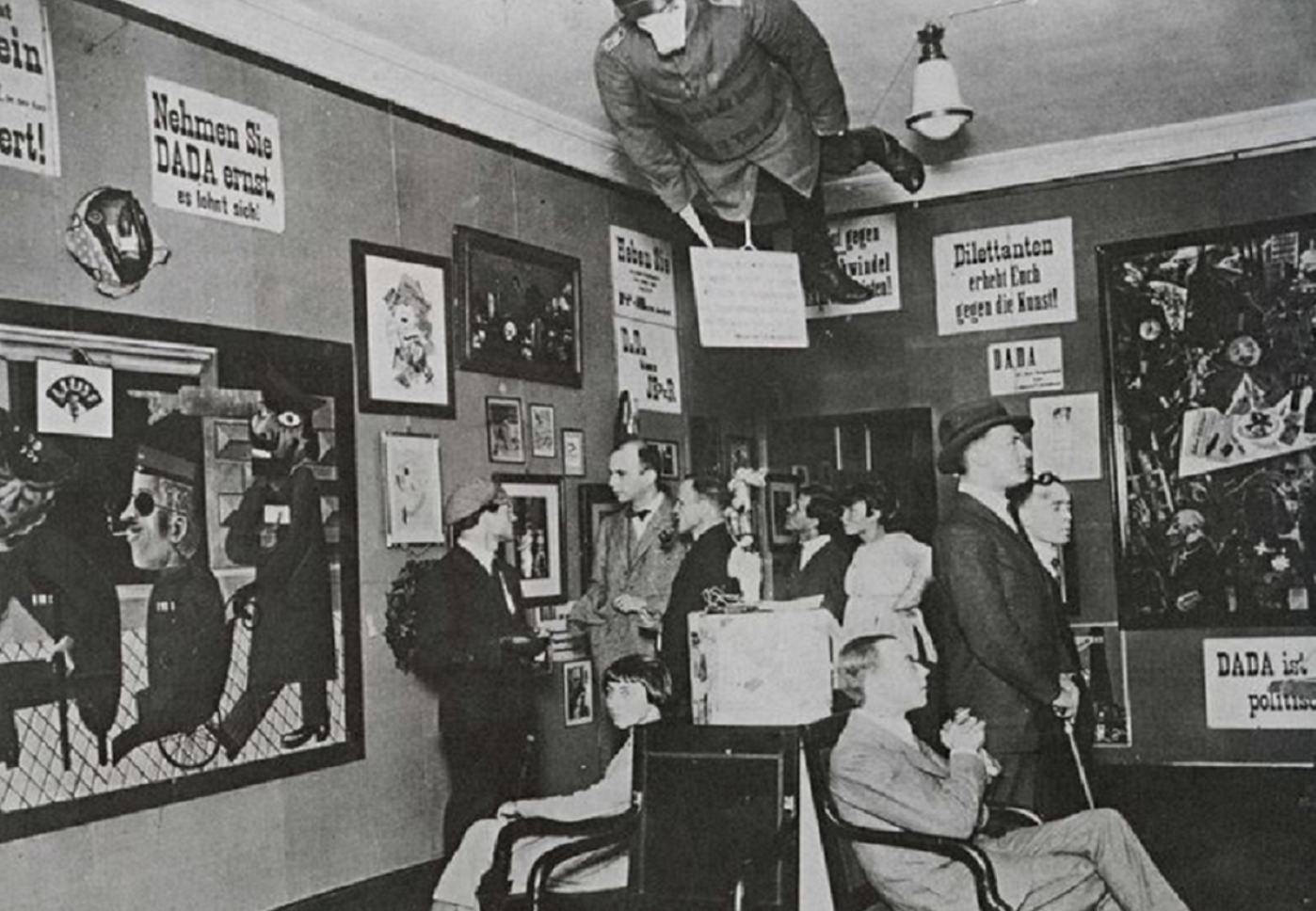

With a history dating back to 1916, the Cabaret Voltaire is a staple of Zurich’s art scene. This was a place for artistic expression.
The story of Cabaret Voltaire starts and the beginning of World War I. The German actor, Hugo Ball was refused entry when he attempted to enlist in the army. After the invasion of Belgium, which he witnessed, any sense of patriotism that he had is said to have disappeared. “The war is founded on a glaring mistake, men have been confused with machines,” Ball said.
Hugo Ball fled to Switzerland – which remained neutral through World War I -, where he settles in Zurich. His experience of the War and his penchant towards anarchist philosophy became the building blocks for the Dadaist movement.
Along with a couple of other disillusioned artists and political agitators like Hennings, were looking for places to express their ideas and frustrations of theirs. They found what they were looking for at Spiegelgasse 1, which was already home to a cabaret at the time
Artists along with Ball, announced in a press release: “The Cabaret Voltaire. Using this name, a young group of artists and writers had formed with the objective of becoming a centre for artistic entertainment.”


The Cabaret Voltaire opened, the nights there were filled with bizarre, big, and wonderful, performances that sought out to go to the extreme side of art, pushing the boundaries outside of the norms. The reasoning behind this was that these artists had seen and gone through the madness of War, tearing Europe apart, and this is how they expressed their feelings through their art. It’s even crazy how the movement got its name after one of the founders plunged a knife into a French-German dictionary and took the word it happened to land on. Dadaism was an art form like no other as the goal wasn’t to create works of art, but to oppose modern society. This movement brought together Cubism, Futurism, and Expressionism. It spanned everything from photography, performance, sculpting, performance art and painting.
While The Cabaret Voltaire officially closed in the summer of 1916, after being open for less than a year, its impact cannot be gazed over or forgotten. It was, for a brief time, the vital pulse of avant-garde culture and laid the foundation for the development of the Dadaism Movement!
References
https://www.zuerich.com/en/visit/dadaists-from-1916-poets-and-artists-at-the-cabaret-voltaire
https://www.khanacademy.org/humanities/art-1010/dada-and-surrealism/dada2/a/dada-manifesto
https://www.khanacademy.org/humanities/art-1010/dada-and-surrealism/dada2/a/introduction-to-dada
.

